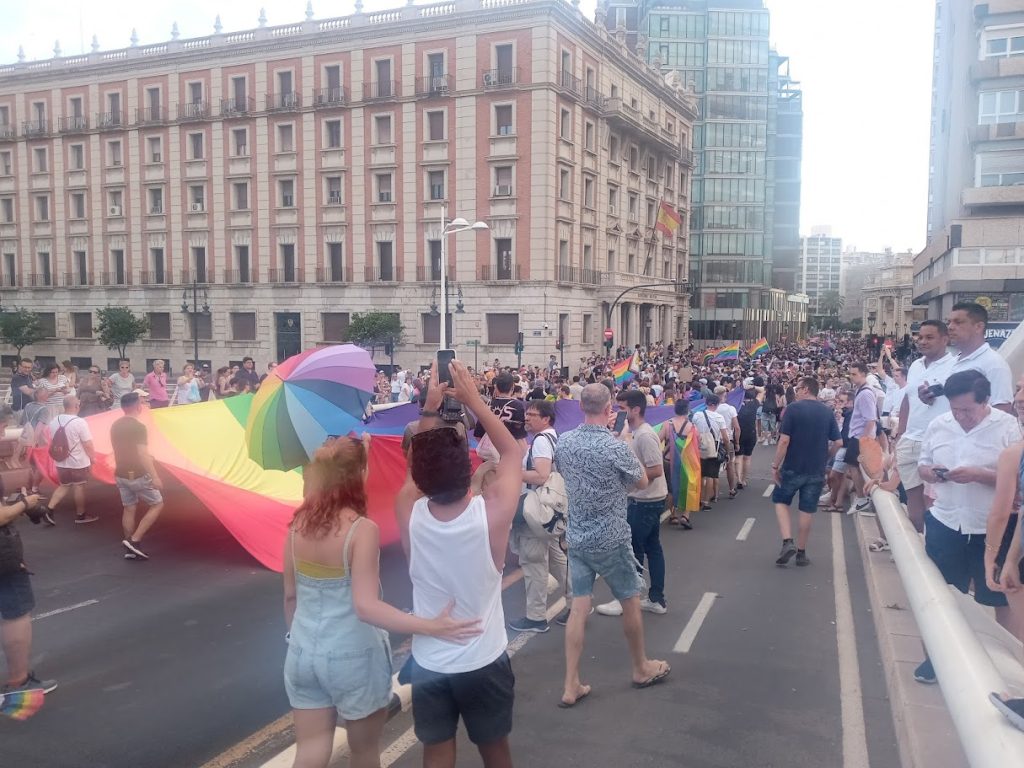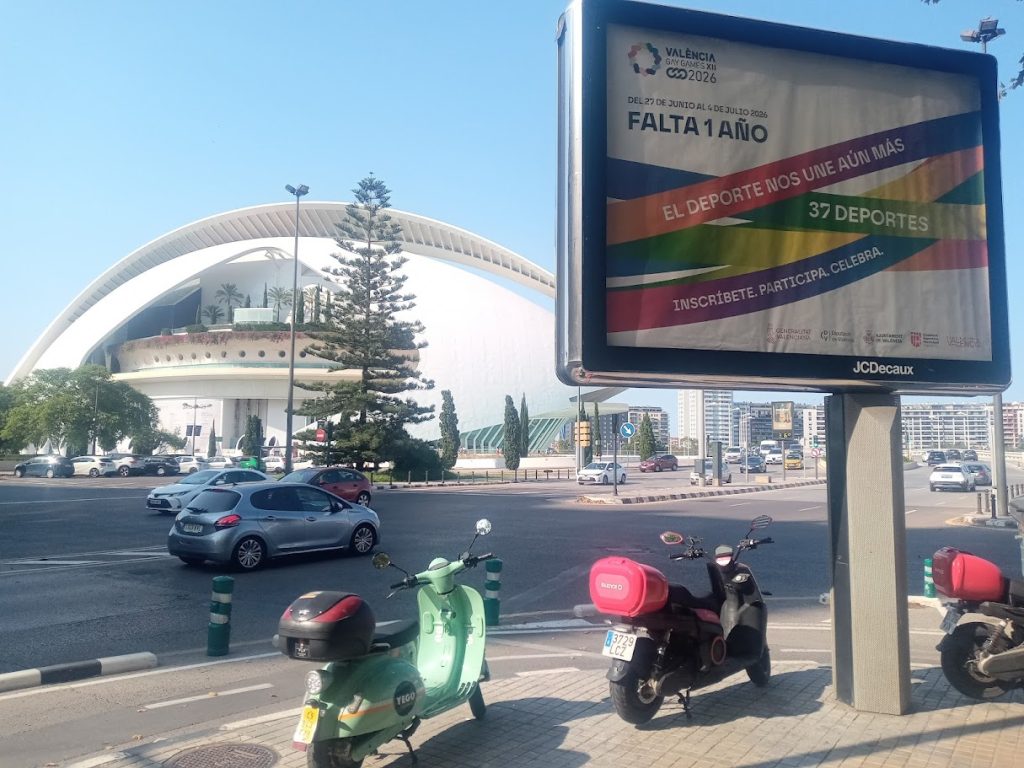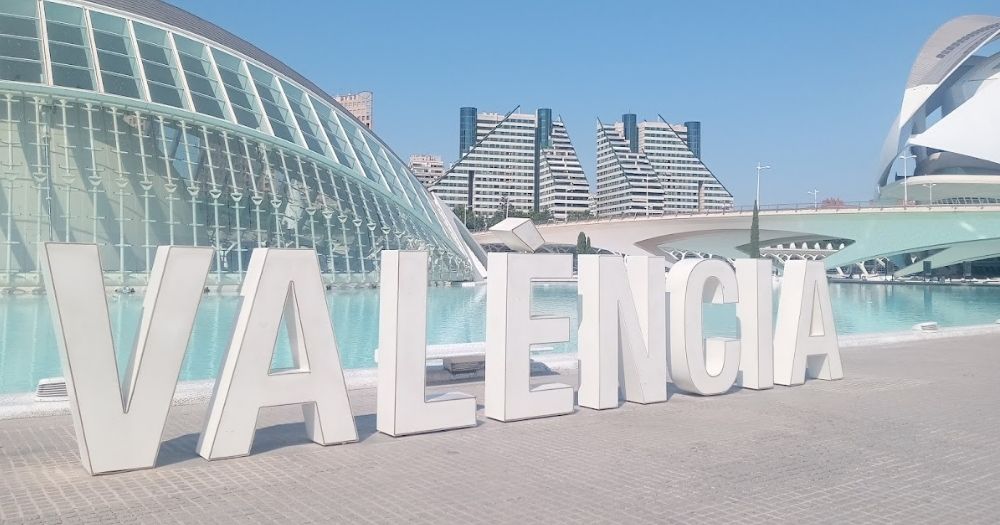Valencia, Spain, is getting ready to host the 2026 Gay Games, and tourism boosters are already preparing to put the city’s best face forward with the hopes of converting some of the estimated 8,000 to 12,000 attendees to return again and again. For LGBTQ+ visitors, the city has it all, from world-class beaches, nightlife and restaurants, to centuries-old culture and history.
If you plan to attend the Games, the best time to organise your travels is now. Gay Games run from June 27 through to July 4, and June through August are the busiest times for tourism to Valencia. That’s when Europeans flock to the city to take advantage of warm sunny days and twilight nights when the sun doesn’t set until about 9:30pm and doesn’t really get dark until about an hour after that.
The Gay Games includes 33 venues, 22 of which are government-owned and all but a handful are in the city limits. Besides the competitions themselves, Gay Games hosts a number of social gatherings and the Gay Games Village, similar to the Olympic Village, will take place in the expansive grounds of the modern and iconic Ciudad de las Artes y las Ciencias (City of Arts and Sciences) buildings.
With a population of nearly 800,000, Valencia is Spain’s third-largest city after Madrid and Barcelona. Valencia played a pivotal part in world history.
It was in Valencia in 1488 when Christopher Columbus first approached Queen Isabella and King Ferdinand to ask for Spain’s backing to find a new route to Asia. Portugal had already turned him down, but by 1492, the Spanish royals were more receptive to Columbus’s sales pitch.
At that time, Spain was finally overcoming centuries of Muslim domination. Feeling more optimistic about their country’s future, Isabella and Ferdinand greenlighted Columbus’s famed 1492 journey. It all began in Valencia.
Modern times saw the beautification of the city following the flood of 1957 that took at least 81 lives. The city decided to divert the river so it flowed outside of the downtown area. Almost 12 miles of the old riverbed were transformed into parkland, with the crown jewels being the aforementioned Ciudad de las Artes buildings that look a little like the Sydney Opera House. The sprawling and stunning complex first began construction in 1996. It is made up of six unique buildings, including a hands-on science museum, concert hall and Europe’s largest aquarium.
The historic centre of Valencia used to be surrounded by a wall. Two ornate, massive entry gates remain and have become very popular tourist attractions.
The Torres de Quart offers great views of the old city and the new riverbed park. The other gate tower, Torres de Serranos, offers similar views. The gates were sometimes used as jails, and the bell on the side was used to signal when a prisoner escaped. The Serranos tower was used to hide and protect art during the Spanish Civil War.
Valencia’s main cathedral, Catedral de Valencia, has the so-called Holy Grail, a chalice that may have been used by Jesus at the Last Supper. The cup dates back to Jesus’s time, and jewels were added to the bottom of it as that opulence wouldn’t have been characteristic of Jesus’s life as a humble carpenter.
Just a short walk away from the cathedral is the Iglesia de San Nicolas, sometimes called Spain’s Sistine Chapel, with its meticulously restored ceiling paintings.
Nightlife
The queer-popular Russafa neighbourhood is adjacent to the historical old town. It’s packed with bars and restaurants. Some could be considered queer-friendly, while others hetero-friendly. The bars and businesses come alive starting around 7pm, and many keep going well into the morning while they still have customers. The nearby main street, Gran Via, hosts larger disco dance spaces.
Some of the more queer-popular bars include La Bella de Cadiz, Franky Four Fingers, Comics, and La Boba y El Gato Rancio in Russafa, the cruise bar Homens (close to the central station), El Cafetin and Trapezzio in El Carmen (downtown), and The Muse, the stop before Deseo 54, the popular weekend LGBTQ+ disco that doesn’t open until 1am and keeps the party going until 7:30am.
Gay-owned Cafe de Las Horas in Old Town is known for its striking red Victorian decor. Try Valencia’s signature drink there, Agua de Valencia, made with orange juice, cava and sometimes gin. You will see piles of oranges all over the bar. Valencia oranges, by the way, are named after the city. Valencia has adopted oranges as one of the symbols of the city, and you will see them on buildings and signs throughout the region.

Daylife
The northern end of the Playa de la Malvarrosa is the most popular of Valencia’s beaches overall. The main gay beach is south of Valencia in La Albufera region. It’s called Playa de l’Arbre del Gos. It is clothing-optional and frequented by people of all genders. It is between the El Saler and Pinedo beaches. Look for a large abandoned chimney stack.
Buses 14 and 15 go to Pinedo beach, and you can walk from there. Or the 25 bus stops at El Saler beach on the other side.
A good way to get the lay of the land is by doing a bicycle tour. Valencia is flat and has bike trails everywhere.
A walking tour of downtown Valencia is also worth doing. A number of companies offer the tours, some of which are free as they make money on tips.
If you travel to Valencia between now and when the Gay Games start in June, you will literally see signs all over the city boasting of its host city status. Valencia is sponsoring billboards announcing the LGBTQ+ competition and the city government also strongly supports the Games, which they hope will be an economic boost to the city.

Did you know we have a team of wonderful runners taking part in this year’s Dublin Marathon and raising funds for GCN? You can support our athletes at this link.
© 2025 GCN (Gay Community News). All rights reserved.
Support GCN
GCN is a free, vital resource for Ireland’s LGBTQ+ community since 1988.
GCN is a trading name of National LGBT Federation CLG, a registered charity - Charity Number: 20034580.
GCN relies on the generous support of the community and allies to sustain the crucial work that we do. Producing GCN is costly, and, in an industry which has been hugely impacted by rising costs, we need your support to help sustain and grow this vital resource.
Supporting GCN for as little as €1.99 per month will help us continue our work as Ireland’s free, independent LGBTQ+ media.
